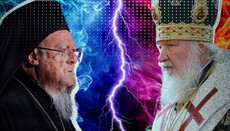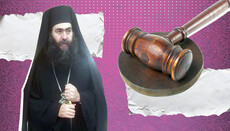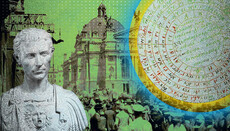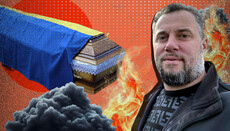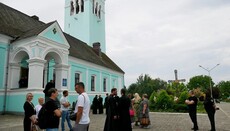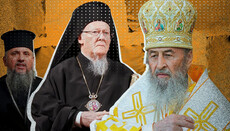New Pope – old policy?
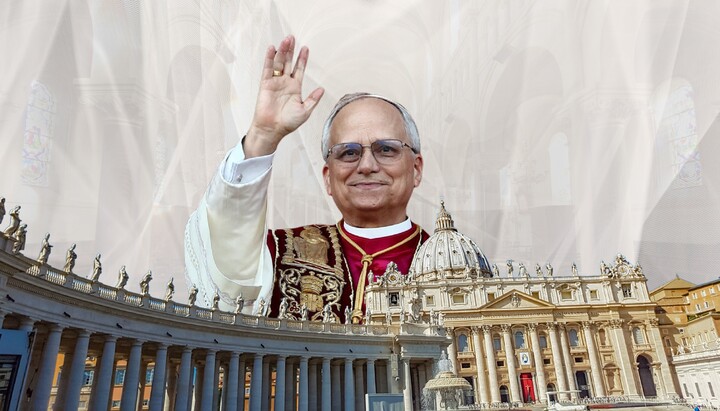
The conclave has elected a new pope. What will his pontificate be like?
On May 8, 2025, the conclave of the Roman Catholic Church elected a new pope. The 69-year-old Robert Francis Prevost was chosen, taking the name Leo XIV. This cardinal had not appeared on any list of likely papal candidates.
In our earlier article about possible papal contenders, we wrote: “It is extremely difficult to guess who will become the next pope, because in the last three conclaves, no one has managed to predict the result before it was officially announced… but if we recall the movie Conclave, which premiered in 2024, the next pope might be someone whose name is barely known to the public.” And that’s exactly what happened – Cardinal Prevost became pope, taking everyone by surprise, including most experts and analysts. So, what should we expect from the new pope? Let’s take a closer look.
A brief biography of Pope Leo
Cardinal Robert Francis Prevost was born on September 14, 1955, in Chicago, Illinois, to Louis Marius Prevost (of French-Italian descent) and Mildred Martinez (of Spanish descent). He began his spiritual education at the Augustinian seminary and graduated from Villanova University in 1977 with a Bachelor of Science degree in mathematics and a minor in philosophy. That same year, Prevost entered the Catholic Theological Union in Chicago, where he earned a Master of Theology degree in 1982 and was ordained as a priest in the Order of St. Augustine on June 19.
To further his studies in canon law, he went to Rome, where he completed his doctoral dissertation at the Pontifical University of St. Thomas Aquinas in 1987. Between 1985 and 1986, he served on a mission in Peru, returned to the U.S. for a time, but soon went back to lead the Augustinian seminary in Trujillo, Peru.
On November 3, 2014, Pope Francis appointed him apostolic administrator of the Diocese of Chiclayo, Peru, and made him titular bishop of Sufar. On September 26, 2015, he officially took over the diocese and was elected second vice president of the Peruvian Bishops' Conference. He served in Peru for two decades, where he became a bishop and was naturalized as a Peruvian citizen (Prevost holds a Peruvian passport), and later rose to one of the most influential positions in the Vatican.
In 2019, Prevost joined the Congregation for the Clergy; in 2020, he became a member of the Congregation for Bishops; and in 2023, he was appointed head of the Dicastery for Bishops. In that role, Prevost selected candidates for bishopship and also vetted bishops who would later become cardinals. Vatican insiders say that this is one of the reasons many cardinals voted for him – to show gratitude for their bishoprics and red hats.
On September 30, 2023, Pope Francis elevated Robert Prevost to the rank of cardinal, and on May 8, 2025, he became Pope Leo XIV.
Leo’s views on current issues
It’s worth noting that the conclave that elected Pope Leo lasted for two days. On the first day, votes were split, and the two most influential factions – conservatives and liberals – were unable to reach an agreement. Likely, as we previously predicted, Prevost was chosen precisely because he was seen as a compromise figure, someone who could unify a Roman Catholic Church divided by modern issues.
Indeed, Prevost is often described as a “centrist” and a “worthy representative of the middle path”. His views on the most controversial and pressing topics are generally considered moderate.
Pope Leo is also known for certain personal qualities that draw people to him. He firmly believes that “a bishop should not resemble a petty prince in a kingdom.” The new pontiff also holds that a church leader is “truly called to be humble, to be close to those he serves, to walk alongside them and share in their suffering.” Friends simply call him “Bob” (short for “Robert”) and emphasize that he believes “everyone in the Church has both the right and the duty to speak out.”
He is considered a man of tact and simplicity – friends say he may bless a baby, but won’t pick it up. At the same time, despite his seemingly gentle demeanor, Cardinal Prevost has taken firm and uncompromising positions on certain issues.
This is especially true regarding LGBT advocacy, which has gained support within the Church in recent years. For example, in 2012, Prevost complained that Western media and popular culture were fostering “sympathy for beliefs and practices contrary to the Gospel,” specifically mentioning “the homosexual lifestyle” and “non-traditional families made up of same-sex partners and their adopted children”. As bishop of Chiclayo, he also opposed the introduction of gender education in schools, stating that “promoting gender ideology is misleading because it tries to create genders that do not exist”.
Nevertheless, all of his statements, including those on LGBT issues, are marked by extreme caution and diplomacy. Those close to him describe him as someone who “does not reveal his inner self”. As a result, it is very difficult to know what he truly thinks.
Nevertheless, while Prevost cannot be described as a proponent of radical changes regarding gender and morality, much indicates that his election is a victory for the leftist, reformist wing, which clearly had a preponderance at the conclave thanks to Francis' appointments.
Pope Leo and the USA
The election of Leo XIV was a historic moment for the Roman Catholic Church. For the first time in its 2,000-year history, it is being led by an American. Many experts see this as a sign of the modern Church's increasingly open character. Even the name Leo, chosen by the new pope, is no coincidence: it references Pope Leo XIII, the author of the famous social encyclical Rerum Novarum. According to analysts, this may signal Pope Leo’s intention to engage actively with global issues.
Just before the election, Donald Trump appeared on social media dressed in papal vestments and declared he would like to become pope himself. Of course, it was a joke, but like all jokes, it held a grain of truth. Given the tense relationship between the Vatican and the White House, everyone understood the U.S. had an interest in seeing “their own” candidate elected. That’s why Trump backed Cardinal Dolan for the papacy, referring to him as a “good guy”. However, many analysts argued that the conclave would never agree. “Anyone but an American” was the global media’s refrain before the vote.
And the concern wasn't just that electing an American pope could raise suspicions about U.S. State Department interference in the conclave. It was also about Trump himself, who frequently speaks in messianic terms. In a political climate where the U.S. President continually calls for a return to Christian roots and champions conservative values, a new pope might become, in Trump’s eyes, a unifying symbol – an eagle from the Capitol paired with one from the Vatican. There’s little doubt Trump will attempt to use Leo XIV’s image to reinforce his narrative of America’s divine mission and national spiritual renewal. The only question is whether Pope Leo will allow himself to be used this way.
And here lies the problem: Despite Trump’s efforts to present the election of the first American pope as a personal political win, Cardinal Prevost is not the “good old boy” or “house pope” the White House might have hoped for.
Prevost owes his rise to Pope Francis and is likely to continue the same path. Let’s not forget that after Trump’s election, Francis criticized the administration’s tough stance on immigration. As it turns out, Pope Leo has done the same. One of Cardinal Prevost’s most well-known posts, which garnered nearly 20 million views, was a direct critique of Trump’s immigration policies.
In short, while the new pope may be American, he is unlikely to be the kind of American the White House had in mind.
Pope Leo and Ukraine
The election of Cardinal Prevost to the papacy has already been called “good news for Ukraine”, and President Volodymyr Zelensky has urged the new pope to continue supporting the country in its war against Russia. It should be noted that before his election, Prevost made relatively few public statements on the issue. However, he did explicitly refer to what is happening in Ukraine as “a real invasion, imperialistic in nature,” emphasizing that Russia is waging war for territorial ambition and power. He also stated that “crimes against humanity are being committed in Ukraine”.
Prevost has consistently advocated for peace and condemned aggression as a political tool. In his first address to “the city and the world”, he declared the need to “build bridges”, promised that “evil will not prevail”, and declared that “we are disciples of Christ and the world needs His light”. "Humanity needs God and His love to reach Him. Let us build bridges through dialogue and encounters to be one people in the world," he said.
Whether Pope Leo will continue Francis’s approach, calling for peace with Russia, referring to Russian culture as “great” and speaking of the “brotherhood” between Ukrainians and Russians, remains unclear.
Pope Leo and Orthodoxy
In recent years, relations between the Roman Catholic Church and the Ecumenical Patriarchate have been progressing rapidly. If not for Pope Francis’s illness and death, we might have already witnessed the first joint celebration of Easter. There is little doubt that under the new pontiff, these relations will continue to advance – perhaps, slowly and gradually – toward a goal that Patriarch Bartholomew has called “inevitable”: joint communion between the Roman Catholic Church and the Patriarchate of Constantinople. In his very first address, Pope Leo XIV subtly hinted that he will pursue closer relations not only with the Orthodox but also with Protestants, calling Christians to a “brotherly unity in faith”.
In the end, Catholics have received a pope who may be able to unite a Church that, due to liberal reforms, stands on the brink of schism. Most Catholics hope he will avoid sudden and unpredictable changes, will not legalize same-sex marriages or ordain women, and will keep the Catholic Church firmly aligned with the Gospel teachings.
Whether that will truly be the case, we’ll find out soon enough.
